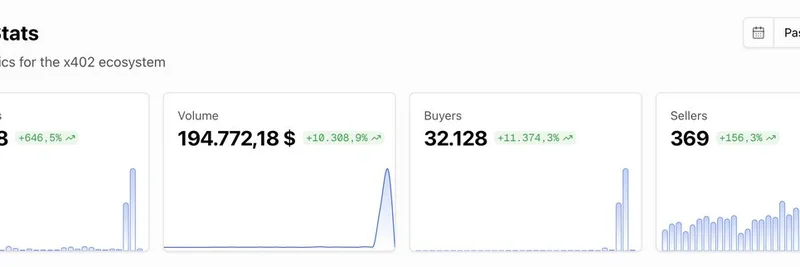In a recent clip shared by @genzcash on X, Mert Mumtaz, CEO of Helius, breaks down the differences between Monero and Zcash privacy in a way that's easy to grasp—even if you're new to crypto. Using a simple shell game analogy, he explains why Zcash might offer stronger, more future-proof privacy. This comes from an episode of Messari's Fully Diluted podcast, where privacy in blockchain takes center stage. Let's unpack what he said and why it matters, especially for those diving into meme tokens on chains like Solana.
The Shell Game Analogy: Monero vs. Zcash
Imagine the classic street hustle with three cups and a ball. The hustler shuffles them around, and you guess where the ball ends up. Mert flips this to explain Monero's approach: it's like that game but with 16 cups instead of three. You're adding "probabilistic decoys" to hide the real transaction among fakes. It obfuscates things, making it harder to track, but not impossible.
As Mert points out, "With Monero, you're introducing probabilistic decoys to the process. It's like that game where there's 3 cups and there's a ball in one of them and you move them around. With Monero, it's basically that game but it's 16 cups. And so you're obfuscating what's happening. But you can imagine, as computers get stronger—and by the way, this is already possible—you'll actually be able to deanonymize the entire history of that chain of events."
Now, contrast that with Zcash. Here, there's no obfuscation—it's pure encryption. Mert says, "Versus with something like Zcash, there is no obfuscation. It is a pure encryption. It's like if the ball just didn't exist at all." In other words, Zcash doesn't just hide the ball; it makes the whole game invisible. This zero-knowledge proof tech ensures transactions are encrypted from the ground up, minimizing info leaks that could compromise privacy over time.
This analogy highlights a key debate in privacy coins. Monero relies on mixing transactions with decoys, which works well now but could crack under advanced computing—like quantum tech in the next decade. Zcash, built on zk-SNARKs (a type of zero-knowledge proof that lets you prove something without revealing details), offers cryptographic guarantees that are harder to break.
The Podcast Context: Privacy's Big Comeback
The clip is from a Messari Fully Diluted episode featuring Mert alongside host Dylan Bane and Messari researchers Youssef Haidar and others. Titled "Helius on Privacy’s Next Wave: Zcash, Solana, & Future of Onchain Markets," the discussion dives into why privacy is crypto's underrated superpower.
Mert argues privacy isn't a nice-to-have—it's essential. Blockchains leak data by default, from transaction metadata to wallet behaviors. Without bottom-up design, these leaks stack up, making systems vulnerable. He praises Zcash as "secret Bitcoin," echoing early visions from Satoshi Nakamoto and Hal Finney for encrypted transactions.
The talk also covers Zcash's recent upgrades, like the Tachyon update for better scalability and the Zashi wallet for user-friendly features such as private messaging and tipping. On the regulatory side, Mert notes shifting winds, like SEC Commissioner Hester Peirce's support for privacy rights, which could make building privacy tech less risky.
Solana's Privacy Angle and Meme Token Ties
Solana gets a shoutout too. As a high-speed chain buzzing with meme tokens (often called "shitcoins" in the convo), it's starting to integrate privacy tools. Mert mentions projects like Light Protocol's ZK compression, Cipher, and Vanish, plus ideas like "ZK Sol"—a liquid staking token for privacy pools that lets you earn yields while staying hidden.
For meme token traders, this is huge. Meme coins thrive on hype and quick flips, but public blockchains expose your moves—whales can front-run trades, or regulators might snoop. Privacy layers could level the playing field, letting you swap memes without broadcasting your wallet history. Imagine launching a meme token with built-in shields, or trading on Solana's DeFi without metadata leaks from wallets like Phantom.
Mert touches on Solana's edge in trading infra, with prop AMMs (automated market makers) using concealment to avoid exploits. As Solana evolves with upgrades like Fire Dancer, it could become a hub for private, fast meme markets—competing with centralized exchanges for everything from stocks to uranium tokens.
Why This Matters for Meme Enthusiasts
Privacy coins like Zcash aren't just for dark web lore; they're tools for everyday crypto users. In a world where Europe scans private messages and carbon footprints get tracked, strong privacy protects freedom. For meme tokens, which often poke at norms and attract wild communities, encryption adds a layer of fun and safety—think anonymous tipping wars or shielded giveaways.
@genzcash, Zcash's "memetic warfare division," is all about this vibe, blending tech with culture. As Mert predicts, Zcash could rank among top tokens in 20 years, especially if privacy becomes mainstream.
If you're into memes and blockchain, check out the full podcast for more gems. It's a reminder that in crypto, the best tech isn't always the flashiest—sometimes, it's the one that lets you disappear when you want to.

